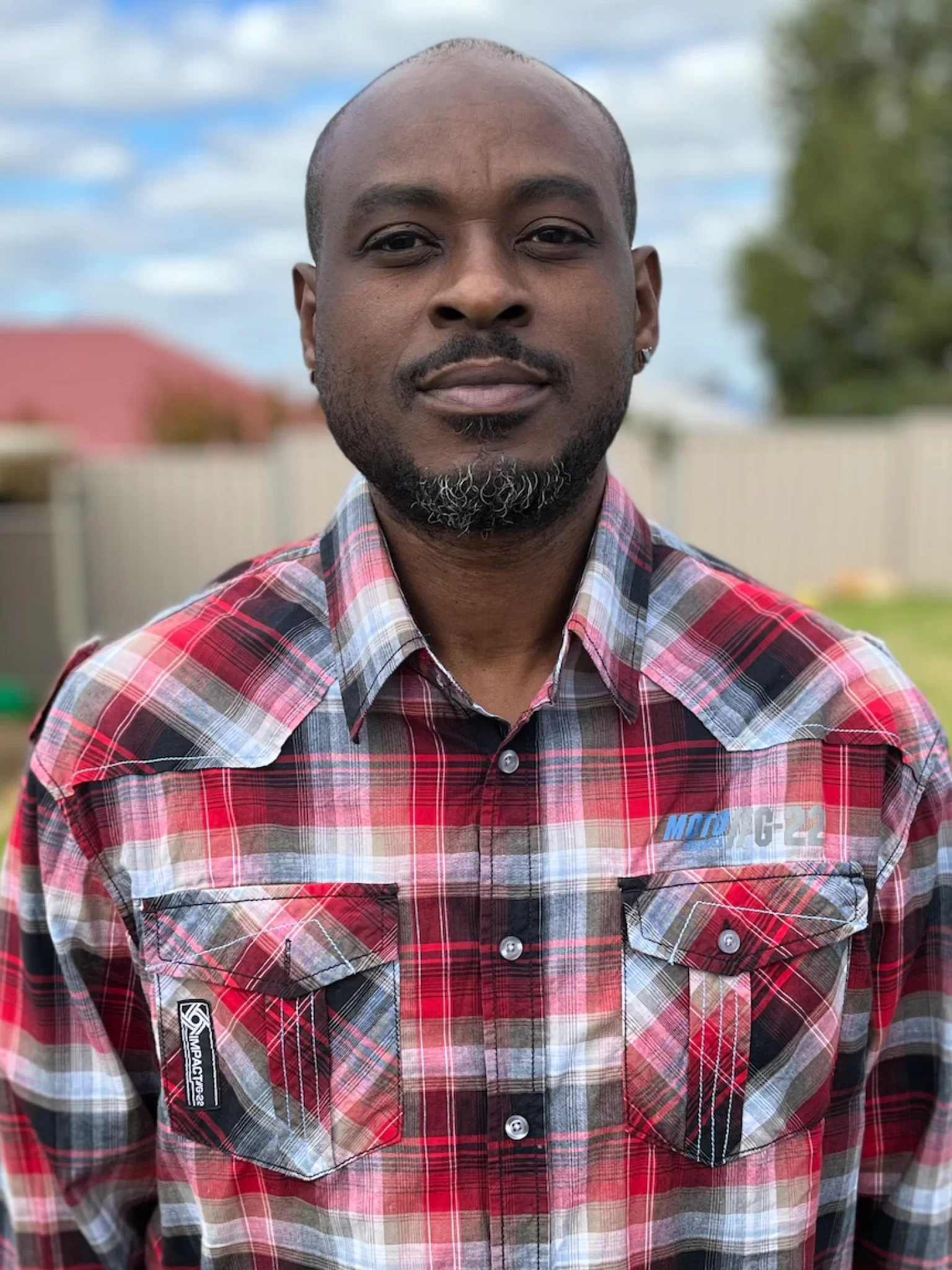South Australian aged care nurse and family granted bridging visas days before deportation deadline
A South Australian aged care nurse and his family have been granted new bridging visas, four days before they were set to be deported.
Key points:
- Aged care nurse Clifford Chisengalumbwe and his family’s visas were due to expire on Friday
- They have been granted bridging visas until January, long enough for them to apply for permanent residency
- Their lawyer says people working in in-demand jobs should get visas more easily
Clifford Chisengalumbwe faced being deported tomorrow if the federal government did not grant him, his wife, Ngoza, and their daughter, Mckayla, new visas allowing them to stay in Australia.
Mr Chisengalumbwe has been working in aged care since 2012, and has been an enrolled nurse at the Lerwin Nursing Home in Murray Bridge since 2017.
He and his wife first arrived in Australia from Zambia in 2005 and had their daughter, Mckayla, in 2014.
The new visas come with full working rights and mean the family can stay until January, when they will be eligible to apply for permanent residency.
Mr Chisengalumbwe said the news had given his family some peace of mind.
“That was very good, and at least we settled a bit because they were just giving us bridging visas for a month, for up to 30 days,” he said.
“But this time they’ve given us a bridging visas that’s up to January 12.”
Call for easier process for skilled workers
Mr Chisengalumbwe’s immigration lawyer, Mark Glazbrook, said the immigration minister’s ministerial intervention unit had granted his clients new visas because of the media interest the case attracted last month.
Mr Glazbrook now hopes the unit or the minister, Andrew Giles, will look at granting the Chisengalumbwes either permanent residency or another visa that guarantees work rights for the long term.
“I would imagine that the ministerial intervention unit receives hundreds or thousands of requests seeking the minister to personally intervene in a matter such as this,” Mr Glazbrook said.
“What would be very beneficial for Clifford and others living and working in a regional economy — and especially those [who] are working in an area where there are demonstrated skilled shortages — it would be great if the ministerial intervention unit and the Australian government introduced new eligibility criteria that would take that into consideration.”
He said that immigrants having to wait up to three years for decisions on permanent residency left them “in a state of limbo”.
“I think, if the federal government is saying, ‘We want to attract people from overseas to address skills shortages because we’ve identified people and occupations that are in demand’, [then] we should really be looking at those people [who] are already here and helping them get residency so at least they’re settled and can move on with their lives,” he said.
Mr Giles has been contacted for comment.
The Australian Nursing and Midwifery Federation estimates that, by 2025, South Australia will be short by 10,000–15,000 nurses and midwives.
There are calls for more nurses to come from overseas and for more Australians to study nursing at university.
Last month, a Scottish family that was facing deportation was given a one-month reprieve after an appeal on their behalf by South Australian Premier Peter Malinauskas to Mr Giles.

